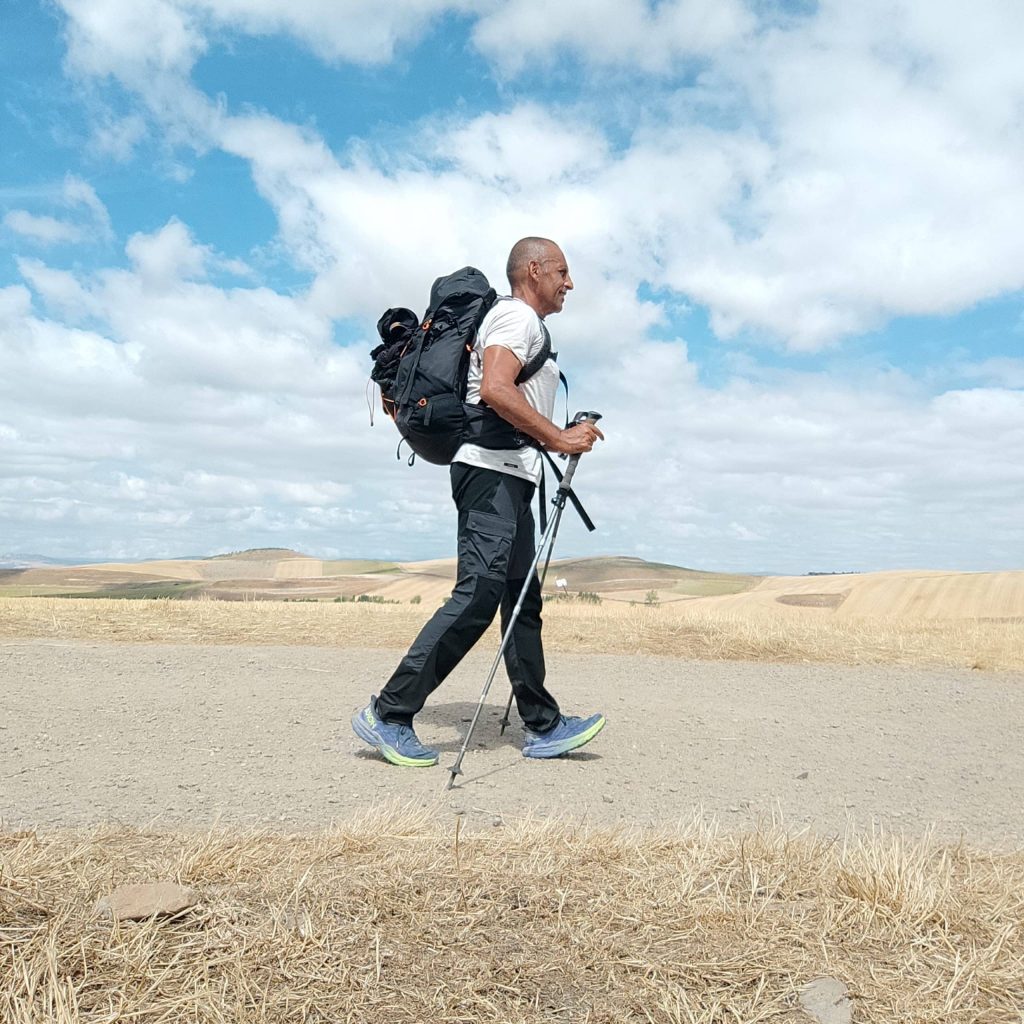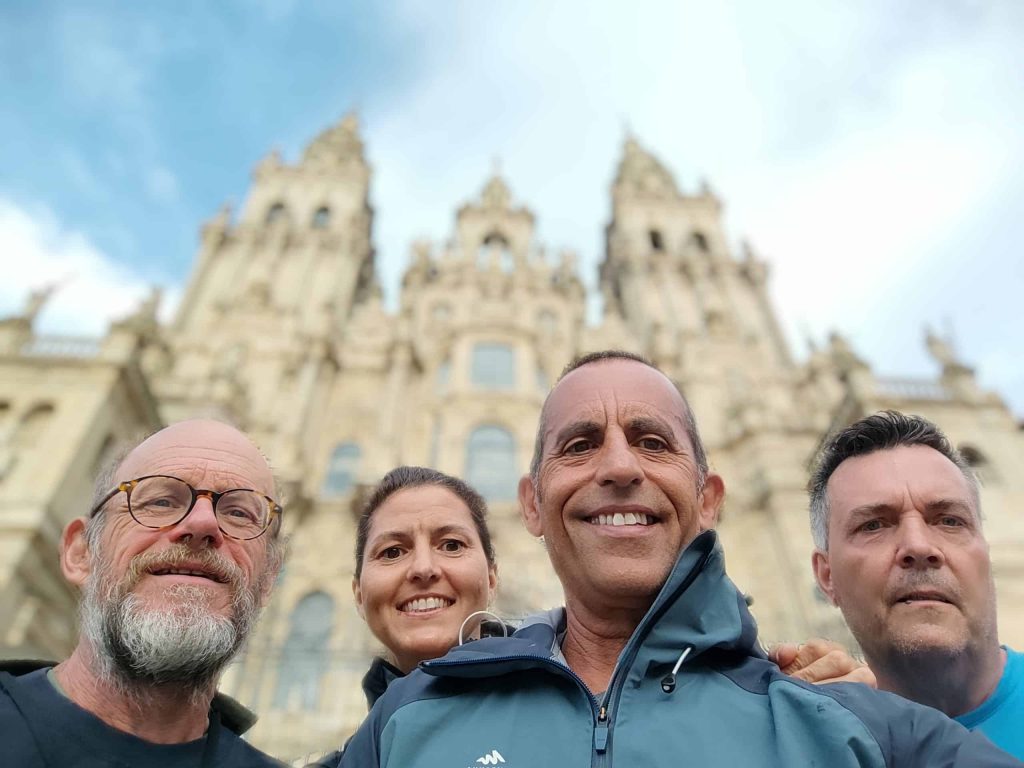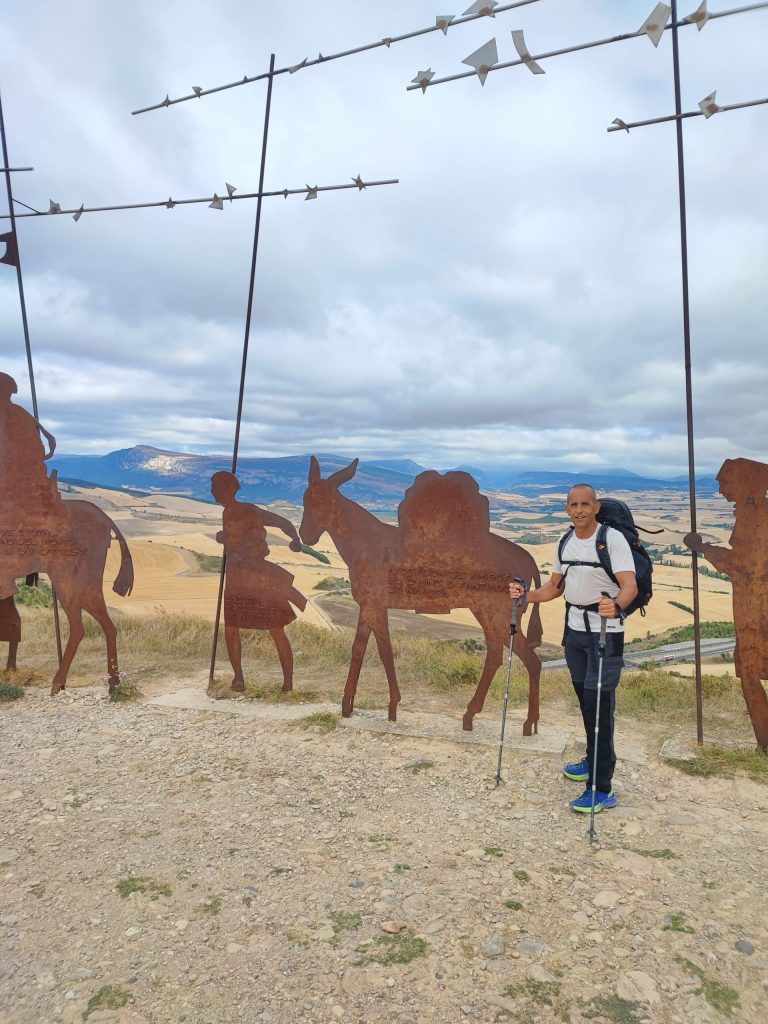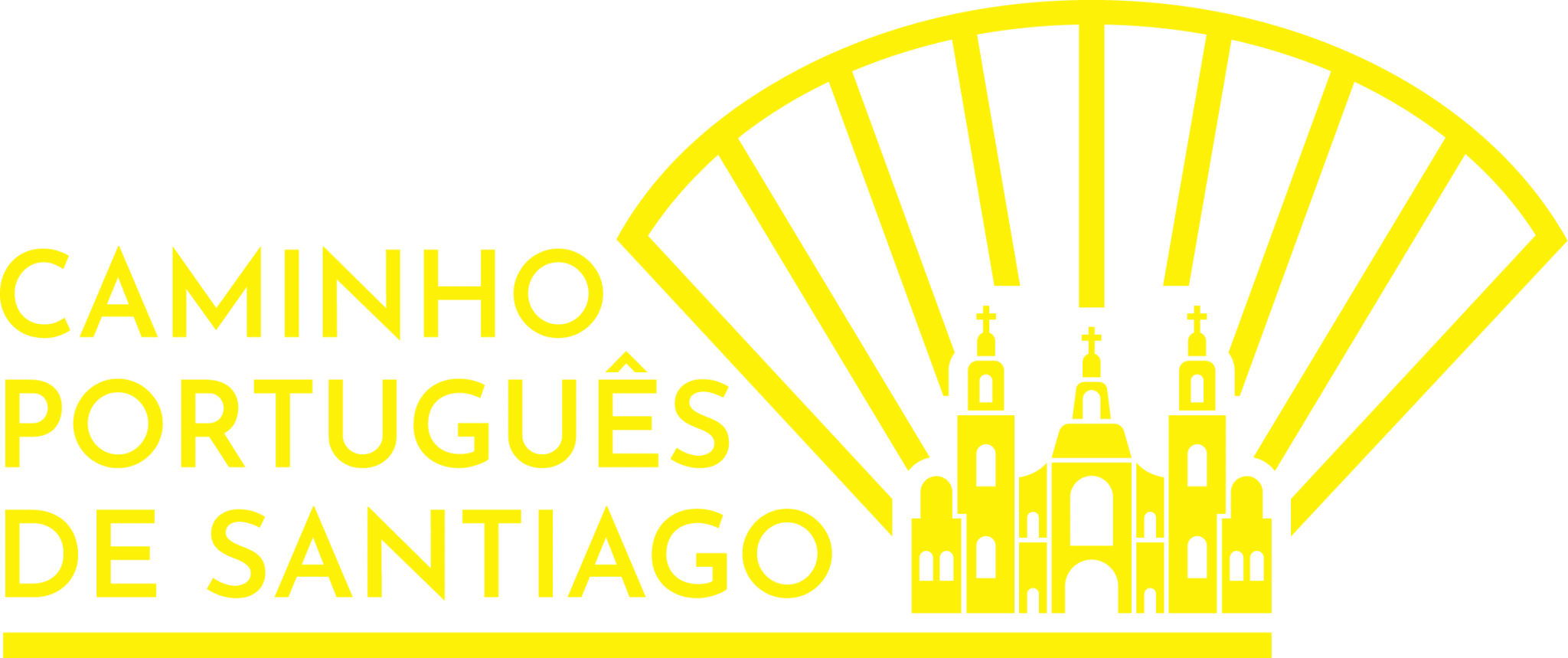
Blog
“On the Way” with Jesus

Jesus Vitor has been influenced (in a good way) by the best that art has to offer and, without knowing it, began a serious relationship with the French journey to the capital of Galicia. Read this interview and let yourself be inspired by this journey.
Why did you make the Way to Santiago?
Jesus: They say that the Way calls you.
The Way appears in my life through the movie “The Way”. At the time I thought it was a work of fiction, I didn’t know that there were several ways to Santiago de Compostela. I read Paulo Coelho’s book “O diário de um mago” a second time through. And, again, I still thought it would be fiction.
Reading the book left me wanting to have a similar adventure, never imagining that one day I would do it. Hiking came into my life through friends. I started participating in hikes on weekends, and there for the first time, I started hearing about the Way to Santiago.
There was someone in my hiking group who was going to hike from Valença to Santiago. At the time I didn’t find it very funny, I thought it would be a journey of sacrifice and pain. I wasn’t very attracted to the idea of walking for a week with a group of people. In 2020 I meet André, a 68-year-old Frenchman.
He told me that he has done the Way to Santiago three times, from Bretanha to Santiago. He encourages me to do the Way, telling me that it’s something phenomenal and that I would never forget the experience. The same year the idea of doing the Way to Santiago began to grow in me. Without doubts, I knew which one I wanted to do “The French Way” from Saint Jean Pied de Port to Santiago. Then the questions arose: that it would be too many days, I wouldn’t have enough time, etc.
The road that year was replaced by the National 2 by motorcycle, it seemed to me a more feasible and possible adventure. The French road remained a dream, impossible to do because I never had the time available.
In March 2022 again my will to do the path returned, I started planning and looking at information on the Internet: how many days, what to take in the backpack, where to sleep. I began preparing what to take in May, to make sure I wouldn’t forget anything. My stipulated departure day was August 15.

How many days did it take you?
Jesus: I did the French road in 25 days, an average of 32 kilometers a day. Each person has his or her own rhythm, and also the time available is a factor to be taken into account; it conditions us. We have to think that we are not indispensable, life goes on without our presence. We can always do everything; we just have to get started.
What was the best meal along the way?
Jesus: The French Way offers a very good set of support for pilgrims. All along the Way there are places to eat, restaurants, cafes and supermarkets. There are also several places to stay, for all wallets, with some hostels where overnight stays are paid for by donation.
If you have financial difficulties you can spend the night paying nothing, if that is the case. I met an Italian person on the Way who was doing it without money. My best meal might have been at Jose Manuel’s hostel, I can’t remember the name of the village. I also liked a donation hostel, where we all helped prepare the meal. I’ll mention it, but I don’t think it’s necessary, but you all may have realized that some hostels also serve meals.
How did you prepare yourself physically for the journey?
Jesus: My preparation before I went on the path was just walking on the weekends. We did 15 kilometers on Sundays. I don’t think you need much preparation to walk the path. We have all the time in the world during the day, there’s nothing else to do but walking. We stop to eat, have a coffee, look at the landscape. I think the real preparation is made in the first week of the journey. Walking long distances every day is not something natural for everybody. It is something that happens day after day, making the body get used to it. My first week was one of body aches, legs and feet. When I arrived at the hostel and stopped, walking was difficult, but I looked at the other hikers and almost all of them had the same problem. By the second week, my body was used to it and everything was easier.
What surprised you the most on the Way?
Jesus: For me, walking the path would be like doing a hike similar to the ones I used to do on weekends, only longer. But I was wrong. The biggest surprise of the path was the notion of time. After walking for several days, time has another dimension, everything is slower. All there is to do during the day is solely walk. The only thoughts we have during the day are the basic things, simple things. Calling my family, where I am going to stop to eat, where I am going to sleep, how many kilometers I am going to drive tomorrow, what I am doing here
Time slows down. It seemed like I had time for everything, despite the many kilometers of walking, the pain in my feet and legs, and some fatigue. My mental state was one of pure relaxation.

What was your most difficult moment?
Jesus: The most difficult moment for me was crossing the meseta: long paths which are always in a straight line, with plains accompanying on the sides. It reminded me of Alentejo. Walking in a straight line became quite monotonous, I felt some loneliness. Especially because this was one of the parts of the route that I didn’t do with company. Walking alone is different from having company, it makes you leave your comfort zone.
Who did you meet on the Way that you will never forget?
Jesus: I knew that the French Way was heavily traveled, but I didn’t realize that people from all continents traveled it. I met people from all five continents. The dinners at the end of the day were always very animated, always made up of people from all over the world, some of whom I would see again the next day at the stopping points. Everyone’s objective was the same, to reach Compostela, and others continued to Finisterra, the end of the world, as some said. I have several people that I will never forget because they were with me all along the way, walking or at dinner.
What should a pilgrim’s suitcase include?
Jesus: What a pilgrim’s suitcase should not lack is a very difficult question to answer. I think it depends on each person. In my case, I think that a good backpack is essential as well as Compeed: pads for the blisters on my feet, were of great use. So were hiking poles. Take the minimum in your backpack; if something is missing, you can always buy it on the Way.
If you could give only one tip to people who are thinking of doing the path, what would it be?
Jesus: One tip I can give you is not to plan too much, just go at your own pace. Once you are there, adjust it to your own pace. The whole route has support for pilgrims. The stipulated stages are only a reference for the walkers, and if you want you can stop in the next village where you will also have a place to sleep. In the winter months, as they are less traveled, it is natural that many hostels are closed due to the low affluence of people. This is something to keep in mind.

What was your reaction when you arrived in Santiago?
Jesus: When I arrived in Santiago, I felt a mix of emotions: joy for having achieved my goal and sadness because I knew it was over. I was returning to the real world.
